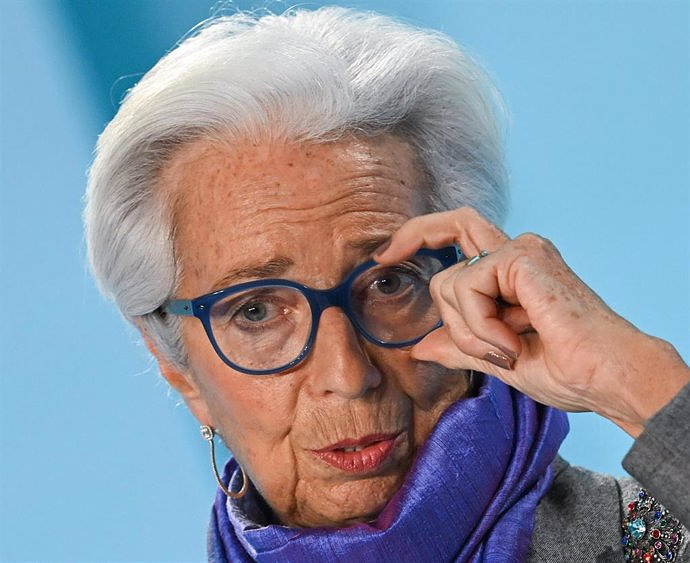He appeals the decision of the AN to also file the case for the other twenty people indicated in his complaint
MADRID, 22 Jul. (EUROPA PRESS) -
The Saharawi Association for the Defense of Human Rights (ASADEDH) has announced an appeal before the Supreme Court (TS) with the intention of revoking the decision of the National Court (AN) to file its complaint against Brahim Ghali and another twenty people and to order the leader of the Polisario Front to be prosecuted for the "genocidal plan" that he claims was carried out between 1975 and 1991 in the Saharawi refugee camps of Tindouf (Algeria).
In a brief presented this week in the TS, to which Europa Press has had access, ASADEDH announces an appeal against a recent resolution of the Criminal Chamber of the AN, of July 11, by which the file was agreed of the case also for the Polisario Front, 23 of its agents and four Algerian soldiers. The magistrates referred to the same reasons they already gave in February to close the case regarding Ghali.
The Chamber then ratified the decision of the head of the Central Court of Instruction Number 5, Santiago Pedraz, who agreed to conclude the summary of the complaint without prosecuting Ghali, considering that the reported crimes had prescribed because the applicable Penal Code is that of 1973, which establishes a statute of limitations of 20 years, counting from 1991, and the complaint was not definitively admitted until 2012.
The magistrates also understood that the reported events do not constitute a crime of genocide, arguing in this sense that it was not possible to identify "a subgroup among nationals of the Sahara" that they wanted to eradicate due to their singularity, and reiterating that, in any case, they have prescribed because "the presentation of a complaint is not enough" to interrupt the terms of extinction of criminal responsibility.
Pedraz definitively filed the complaint on May 31, by agreeing to the free dismissal for those other 27 people, a step also supported by the Chamber, which believes that the reasons applied to Ghali "are fully valid for the remaining defendants", even " with even greater reason" because none have been in person. "They are as absent from the procedure as they were before the complaint was admitted for processing," he stated.
In its new brief, ASADEDH not only announces an appeal against this latest setback by the AN, but also clarifies that it remains firm in its intention to challenge the file for Ghali as well --as it anticipated in February itself--, after that the resignation of another private accusation to fight the free dismissal for the leader of the Polisario Front has generated some confusion.
Thus, he advances the reasons why he believes that both files should be revoked and that Ghali should be prosecuted and "order his search, capture and imprisonment, issuing the appropriate international arrest warrants against him for his subsequent extradition", requesting to address the judicial authorities of Algeria, the country where he is located, for this purpose.
"The assessment of Ghali's actions in the facts, determining if he was part of the repressive apparatus of the genocide or if, on the contrary, he was the executor of certain and unique acts on specific dates, is something that must be elucidated in the act of the trial," says ASADEDH.
In the first place, the Saharawi association claims that the facts described in its complaint constitute a crime of genocide in real competition with crimes of murder, illegal detention, against sexual freedom and injuries or torture.
ASADEDH assures that the elements of the crime of genocide are present, since it says that there was a group "characterized by their ethnicity or race" against which "a systematic attack was launched, through any of the actions described, with the intention of suppressing it totally or partially".
"The investigated actions committed by soldiers of the Polisario Front were directed unequivocally against the Saharawis, people originating from the territory of Western Sahara, who were subjected to persecution solely for the reason of being originating from that territory and with the aim of destroying them, through murder or forced disappearances or even through imprisonment for long periods of time," he asserts.
In addition, it argues that the facts cannot be assessed individually but rather as "a criminal unit" where "taking into consideration each and every one of the actions against the life, dignity and freedom of the people that were carried out against the Saharawis exclusively because of their ethnicity or race, it is absolutely essential for understanding, prosecution and punishment".
As for Ghali, he indicates that his relationship with the events, the place where they would have occurred and the people who would have participated "was not merely accidental, causal or transitory", since "he was an official of the Ministry of Defense and, therefore, he developed his professional tasks in permanent and daily terms" in "the secret jails of the Polisario Front in Tindouf, one of the centers of the repression committed during those years".
At this point he recounts what would have happened to one of his prisoners, who "suffered all kinds of torture" among which he details that they burned him with burning irons and cigarettes and they injected salt water into his wounds, they hung him by his hands and "he saw his friend's fingers cut off and how he bled to death." In addition, when he regained his freedom, "his wife had been married to a man related to the Polisario Front," he adds.
For ASADEDH, "there are sufficient circumstantial elements to be able to affirm that Ghali knew and, what is more relevant, participated in the global collective reality systematically designed and implemented by the authors to destroy the Saharawis, as well as that he was fully aware (... .) that the events in which he personally participated were inserted and integrated into this criminal strategy".
"Ghali held the overall direction of the plan, had decision-making responsibility (...) and knew beforehand --and not after his participation-- the existence of the alleged genocidal plan," he concludes, recalling that he became Defense Minister.
However, he admits that "there is no evidence that he had any details about his specific execution, nor that he participated actively or omissively in other events", only that "he had specific responsibilities that required his intervention in relation to the other events that took place in the clandestine prison of the Polisario Front".
"The fact that he was Minister of Defense makes him responsible for the people who were illegally detained and admitted there and tortured with his personal assistance, stating that he provided it and to what extent," he ditches.
Along the same lines, it defends that "each and every one of the defendants knew and, what is more relevant and differential, participated directly and personally, with acts constituting torture, of the global plan designed and systematically implemented by the authors to destroy the Saharawis".
Secondly, the Saharawi association refutes the prescription observed by the AN, arguing that, if "the interpretation most favorable to the accused" is taken into account, 1991 could be taken as the end date of the alleged genocide, "because it was the year of the release of many of the 'forced disappeared' and the 'ceasefire' between the Kingdom of Morocco and the Polisario Front".
In this scenario, ASADEDH reasons, "the 20-year statute of limitations would have ended in 2011," although it insists that it was interrupted in 2008 with the filing of the original complaint, which it indicates was followed by other relevant decisions.

 Exploring Cardano: Inner Workings and Advantages of this Cryptocurrency
Exploring Cardano: Inner Workings and Advantages of this Cryptocurrency Seville.- Economy.- Innova.- STSA inaugurates its new painting and sealing hangar in San Pablo, for 18 million
Seville.- Economy.- Innova.- STSA inaugurates its new painting and sealing hangar in San Pablo, for 18 million Innova.- More than 300 volunteers join the Andalucía Compromiso Digital network in one month to facilitate access to ICT
Innova.- More than 300 volunteers join the Andalucía Compromiso Digital network in one month to facilitate access to ICT Innova.-AMP.- Ayesa acquires 51% of Sadiel, which will create new technological engineering products and expand markets
Innova.-AMP.- Ayesa acquires 51% of Sadiel, which will create new technological engineering products and expand markets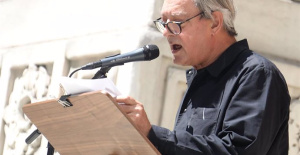 Prominent American writer Paul Auster dies at 77 from lung cancer
Prominent American writer Paul Auster dies at 77 from lung cancer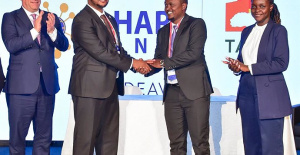 RELEASE: Rendeavor Expands High-Speed Internet Access to Local Communities Around Tatu, Kenya
RELEASE: Rendeavor Expands High-Speed Internet Access to Local Communities Around Tatu, Kenya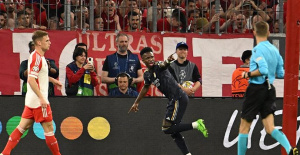 Real Madrid saves a draw in Munich and will appeal again to the Bernabéu
Real Madrid saves a draw in Munich and will appeal again to the Bernabéu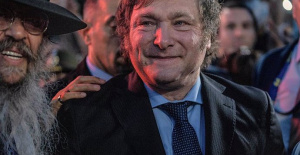 The Congress of Argentina approves the omnibus law that allows the privatization of some public companies
The Congress of Argentina approves the omnibus law that allows the privatization of some public companies How Blockchain in being used to shape the future
How Blockchain in being used to shape the future Not just BTC and ETH: Here Are Some More Interesting Coins Worth Focusing on
Not just BTC and ETH: Here Are Some More Interesting Coins Worth Focusing on Valencia unanimously approves the ordinance to allocate spaces to test innovative initiatives
Valencia unanimously approves the ordinance to allocate spaces to test innovative initiatives UPV researchers promote a paid master's degree as a "talent factory" in integrated photonics
UPV researchers promote a paid master's degree as a "talent factory" in integrated photonics A spin-off of the UV works on obtaining high-resolution 3D biomedical images in real time
A spin-off of the UV works on obtaining high-resolution 3D biomedical images in real time They create a bank of machinery sounds to prevent breakdowns through artificial intelligence
They create a bank of machinery sounds to prevent breakdowns through artificial intelligence A million people demonstrate in France against Macron's pension reform
A million people demonstrate in France against Macron's pension reform Russia launches several missiles against "critical infrastructure" in the city of Zaporizhia
Russia launches several missiles against "critical infrastructure" in the city of Zaporizhia A "procession" remembers the dead of the Calabria shipwreck as bodies continue to wash up on the shore
A "procession" remembers the dead of the Calabria shipwreck as bodies continue to wash up on the shore Prison sentences handed down for three prominent Hong Kong pro-democracy activists
Prison sentences handed down for three prominent Hong Kong pro-democracy activists ETH continues to leave trading platforms, Ethereum balance on exchanges lowest in 3 years
ETH continues to leave trading platforms, Ethereum balance on exchanges lowest in 3 years Investors invest $450 million in Consensys, Ethereum incubator now valued at $7 billion
Investors invest $450 million in Consensys, Ethereum incubator now valued at $7 billion Alchemy Integrates Ethereum L2 Product Starknet to Enhance Web3 Scalability at a Price 100x Lower Than L1 Fees
Alchemy Integrates Ethereum L2 Product Starknet to Enhance Web3 Scalability at a Price 100x Lower Than L1 Fees Mining Report: Bitcoin's Electricity Consumption Declines by 25% in Q1 2022
Mining Report: Bitcoin's Electricity Consumption Declines by 25% in Q1 2022 Oil-to-Bitcoin Mining Firm Crusoe Energy Systems Raised $505 Million
Oil-to-Bitcoin Mining Firm Crusoe Energy Systems Raised $505 Million Microbt reveals the latest Bitcoin mining rigs -- Machines produce up to 126 TH/s with custom 5nm chip design
Microbt reveals the latest Bitcoin mining rigs -- Machines produce up to 126 TH/s with custom 5nm chip design Bitcoin's Mining Difficulty Hits a Lifetime High, With More Than 90% of BTC Supply Issued
Bitcoin's Mining Difficulty Hits a Lifetime High, With More Than 90% of BTC Supply Issued The Biggest Movers are Near, EOS, and RUNE during Friday's Selloff
The Biggest Movers are Near, EOS, and RUNE during Friday's Selloff Global Markets Spooked by a Hawkish Fed and Covid, Stocks and Crypto Gain After Musk Buys Twitter
Global Markets Spooked by a Hawkish Fed and Covid, Stocks and Crypto Gain After Musk Buys Twitter Bitso to offset carbon emissions from the Trading Platform's ERC20, ETH, and BTC Transactions
Bitso to offset carbon emissions from the Trading Platform's ERC20, ETH, and BTC Transactions Draftkings Announces 2022 College Hoops NFT Selection for March Madness
Draftkings Announces 2022 College Hoops NFT Selection for March Madness






